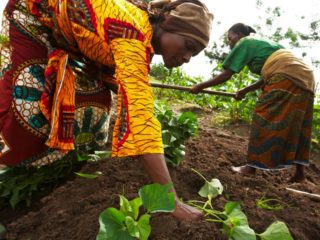5-year research aims to minimise weeds on cassava farms
Cassava farmers will soon smile as the five-year effort
which began in 2014 to minimise the menace of weeds on cassava farms is nearing
completion.
This was the view of scientists who met this week this at
the International Institute of Tropical Agriculture (IITA) in Ibadan, the Oyo
State capital, to review the Cassava Weed Management Project which is being funded
by the Bill and Melinda Gates’ Foundation.
Dr Alfred Dixon, project leader, said the project seeks to
address weed menace and increase cassava productivity in order to minimise the
drudgery of hand weeding by farmers, a task that is particularly reserved for women
and children.
Declaring that the prosperity of Nigeria must be a
collective effort, Dixon said weeds contribute between 50 per cent and 90 per
cent in yield losses to cassava farmers because weed control takes between 50
per cent and 80 per cent of labour budget.
Dr Hauser Stefan, a member of the Project Team, said the
project is employing the best agronomic practices and mechanical weed control
options. He said the project is also applying safe and environmentally friendly
herbicides, integrated weed control measures to address weed challenge while
preserving the natural resource base.
“Working with international and Nigerian engineers, the project
tested two types of motorized mechanical weeders from Africa-Rice Centre for
testing in cassava farming systems.
“With improved weed management technologies, yields are more
than doubled from the current average of 14 tonnes per hectare,” he said.





Comments
Post a Comment